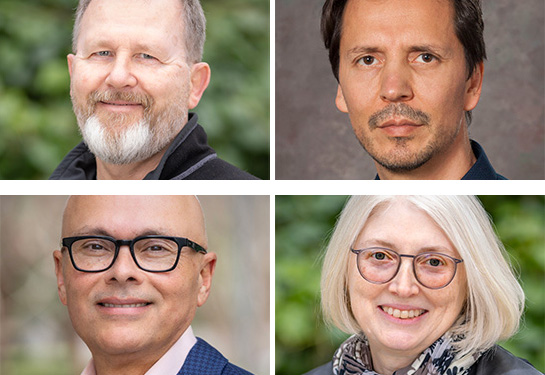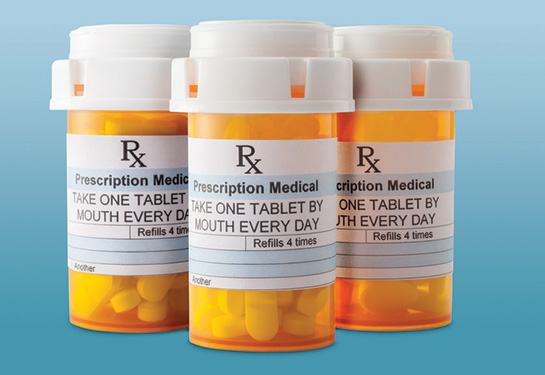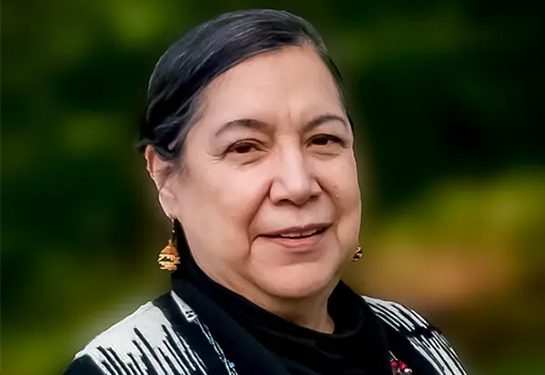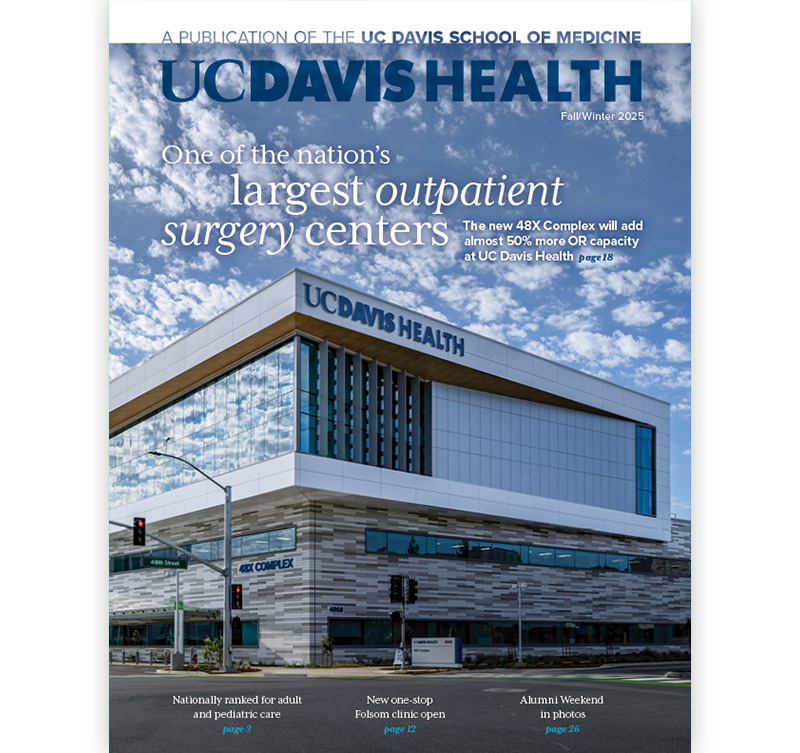Medical school Dean Allison Brashear welcomes the most diverse class ever
School of Medicine Class of 2023: Nearly two-thirds of first-year students are women; 46% belong to underrepresented minority groups
School of Medicine Dean Allison Brashear stood before a lecture hall packed with first-year students during their orientation Tuesday and lauded the class for its wide range of ethnic, racial and gender diversity.

With 46% of the first-year student body belonging to underrepresented minority groups, the class of 2023 is the most diverse class of medical students ever for the UC Davis School of Medicine.
“This is one of the most diverse medical schools, probably in the country – the highest percentage of underrepresented minorities,” she said to loud applause from the class of 123 students.
The clapping continued each time Brashear listed an underrepresented group and the number of students belonging to it:
• 23 African Americans
• 30 Latinx
• 2 Native Americans
• 2 Native Hawaiians
In addition, the new student population is 64% female – tying a school record and showing a remarkable contrast with the first class, in 1972, which had 43 men and three women.
“One of the reasons that diversity is so important in the medical school class, in the faculty, is that it's one way we can really take great care of patients,” Brashear said.
“We know patients want to go to providers who understand their culture,” she said. “Data shows that this makes them happier, more likely to go to the doctor and more likely to buy into the care plan that their doctor and them create.”
Brashear, who noted she's been on the job for a week, after moving here from North Carolina, also spoke about the importance of trust, responsibility and family.
“Nobody got here without a family,” she said. “Whether your biological family, your family of friends, your family of mentors. Everybody here got here because they had help from somebody. You also need to look around because this is part of your new family.”

Brashear, a neurologist, told students that they will remember their experiences with patients throughout medical school, just as she remembers the first patient she cared for in her third year during an Emergency Medicine rotation in a community hospital in Indianapolis.
“But to get through medical school you need to rely on your friends, you need to rely on all of the administrators, the teachers, the faculty,” she said. “We are here to make sure that you are successful, and that is my commitment to you.”
She advised students to trust their colleagues and develop relationships with the patients and their families.
“You will have some of the closest relationships with those patients, and that's a big responsibility.”
Brashear stressed that medical school education is not necessarily about memorization.
“We want you to be lifelong learners,” she said. “We want you to know how to solve the problems, because that's what medicine is about, right? The patient tells you this, the physical exam tells you this. The ancillary testing tells you this, and it's your job to put that all together. And when you put that all together, you're going to be doing that in teams.”
Although medicine will be different 10, and 30 years from now, she said, a constant that will remain is problem solving.
She concluded her remarks by announcing that the dean’s staff is in the process of arranging personal meetings with students. “I’m going to get to meet all of you over the next couple of months.”
In the meantime, Brashear said she has an open-door policy.
“Anything you need,” she said, “The dean has open hours and the whole education team is here to help.”





